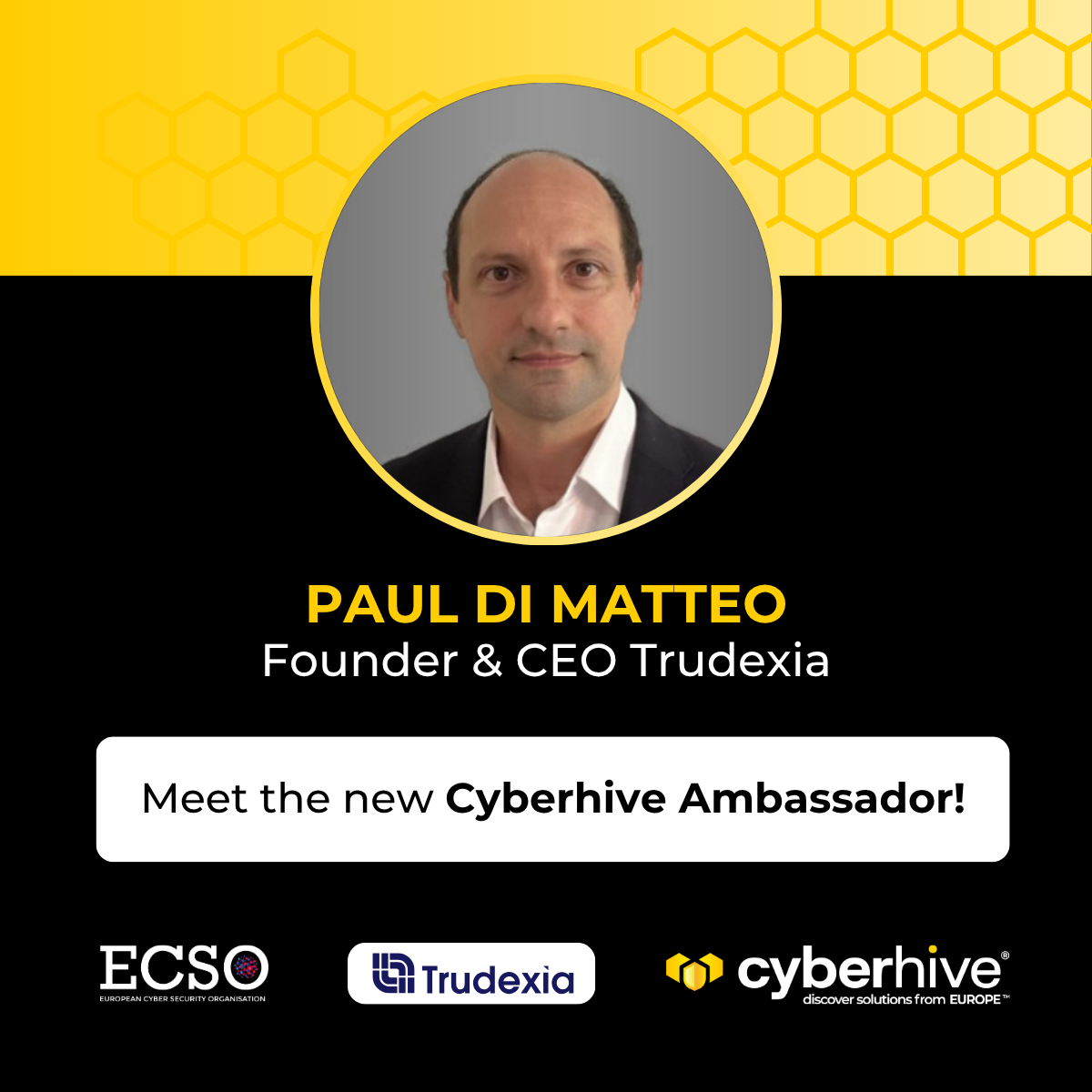Meet the Cyberhive Ambassador Paul Di Matteo!
Paul Di Matteo is the Founder and CEO of Trudexia, with over 25 years in tech and deep expertise in cybersecurity and risk management. After a global career spanning Australia and Europe, Paul now focuses on giving back — helping elevate Europe’s cybersecurity maturity and strategic planning.
Through Trudexia and his involvement with ECSO, Paul advocates for stronger cyber risk assessments, greater digital sovereignty, and reduced dependence on non-European tech. He sees The Cyberhive as a key enabler — a trusted hub for leaders making critical cybersecurity decisions for Europe’s future.
Could you briefly describe your career path and current position?
I am currently the Founder and CEO of Trudexia. My career spans over 25 years in technology with 23 in IT, Information, Cyber Security and Risk Management. I am at work now simply to give back.
Why did you (Trudexia) become a member of ECSO?
I want to be more involved in the future of cybersecurity in Europe.
What would you like to tackle in ECSO to further develop the European security landscape?
I feel that the European security landscape is behind. Behind in maturity of thinking and execution. I have had a lot of experience in my career in Australia, where I was born (I am also a Maltese citizen) and I would like to further the cybersecurity management and planning aspects of the European security landscape. With Trudexia, we can help expand the cyber risk assessments and reviews to inform strategic decisions for management.
What are the major challenges we will have to face in the field of cybersecurity in the coming years?
Without using all the buzz words of AI and Blockchain and the cool technologies coming, the field of cyber security is already behind; the evolution of technology is going to further place the stress and challenges on cyber security practitioners and organisations to remain secure. Other areas of challenge are defence, space and energy. NIS2 is helping there.
What does digital sovereignty actually mean in concrete terms, and what do you think is necessary to achieve it?
Digital sovereignty is void of the interference of adversaries. Maybe an upside-down view of the meaning, however, it is to remain in control of the digital economy without the opportunity for adversaries to influence the direction and or outcomes.
How does dependence on non-European tech providers threaten Europe's cybersecurity?
As above, non-European tech threatens Europe’s cybersecurity by introducing threats to the data, processing and destination of Europe’s digital economy. Loss of confidentiality through foreign state actors’ spying technology, loss of control of outcomes at the mercy of others, and lack of development in technology innovation are a few threats.
What decisive steps do you see for the coming months, and what does this mean for the European security landscape?
The legislation is driving good outcomes however, the culture, awareness, and innovation in cybersecurity need to be taken seriously. I would like to see stronger ground-up investment in universities and colleges and promotion of careers in cybersecurity.
What role do you think that The Cyberhive should play in achieving European strategic autonomy?
Cyberhive should be the "to go to" source for cybersecurity leaders and managers when making purchasing decisions. Cyberhive should offer services and reports that support cybersecurity leaders, who need support selecting and making the right decisions for the protection of Europe.



Comments
Do you want to leave a comment?
Login or register to proceed
Login Register